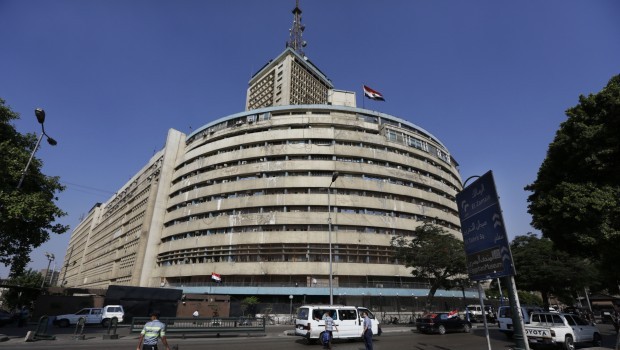A well-known Egyptian anchorwoman enthusiastically presented scenes—which she described as exclusive—of the closure of one of the pro-Muslim Brotherhood channels in Egypt and the arrest of its employees.
Broadcasting the scenes with a satisfied smile, the anchorwoman attempted to justify shutting down the channels, saying that it was a necessary move after they incited supporters of Mursi to wreak havoc.
There was also an excessive commendation of the Egyptian army and the defense minister. The truth is, this over-the-top praise of military and security institutions is no less harmful than incitement, if not worse because it sometimes stirs certain parties to an extent which makes it difficult to hold them accountable for their actions.
What do you think this anchorwoman would do, should the virginity tests on female protesters—carried out under army rule almost two years ago—be repeated?
Following the military’s decision to topple Mohammed Mursi, shut down the Muslim Brotherhood’s media outlets and arrest party officials, a huddle of journalists and media figures in Egypt suddenly joined the group of people satisfied with their “revenge” against the Muslim Brotherhood media.
The fact that Muslim Brotherhood and religious channels in Egypt have, by and large, encouraged violence and deviated away from freedom of expression is not new. But these practices should have been contained via legal action. Do these accusations against Muslim Brotherhood-affiliated media—of stirring supporters and demonizing opponents—not also apply to many of the media outlets that oppose the Brotherhood?
A magnificent popular movement did indeed take place in Egypt, with millions announcing their rejection of the Brotherhood and its policies. But what sped up this quick collapse of the Brotherhood’s image? What made millions of Egyptians—who voted for this movement a year ago—realize that the Brotherhood is not fit for governance?
Is it not the Brotherhood’s media itself that helped push these millions of protesters to the streets?
During the past year, the Brotherhood’s politicians and media exhibited several failures. These were highlighted by opposition media figures, such as Bassem Youssef. It would not be an exaggeration to say that Bassem Youssef is to thank for many of the people who stopped supporting the Muslim Brotherhood exactly a year after they seized power. So why the military interference? And what is the use of making arbitrary decisions that take Arabs and Egyptians into a future of coups and marital law?
Media supervision and censorship are more harmful to freedom of expression when they are selective. It is true that the content of Brotherhood’s own channels, and channels that support the Brotherhood, is provocative—but this is no justification for imposing an illegal ban on freedom of expression and carrying out arbitrary detentions.
Condemning the shutting down of Brotherhood channels is a test we must go through. To request democracy and freedom means to accept those we disagree with. The justification of incitement, which is true, can be used by the opposition since parallel incitements is practiced by the Brotherhood’s rivals.
Yesterday, Brotherhood supporters took to the streets of Cairo and occupied the Rabia Al-Adawiya Square. Shutting down their channels and arresting their leaders is most likely to have been a catalyst that increased the number of protesters. Quickly reopening the channels is a corrective step that the second revolution in Egypt needs.
